Celebrating & recognising the importance of NAIDOC Week
NAIDOC Week is an annual celebration held in the first week of July (Sunday to Sunday) that commemorates the history, culture, and achievements of Aboriginal and Torres Strait Islander peoples. It's a time for all Australians to learn about and acknowledge the rich contributions of First Nations people to the country. The week also serves as an opportunity for Indigenous communities to connect, celebrate their heritage, and share their culture with others.
NAIDOC Week is important for several reasons:
|
Honouring Indigenous Australians:
Provides a platform to recognise the unique and enduring cultures of Aboriginal and Torres Strait Islander peoples, who are the traditional custodians of the land.
|
Promoting Reconciliation:
Encourages all Australians to learn about, understand, and appreciate First Nations cultures, which is a crucial step toward reconciliation.
|
|
Celebrating Achievements:
Highlights the significant contributions of Aboriginal and Torres Strait Islander peoples in various fields, including the arts, sciences, sports, and community leadership.
|
Fostering Unity and Understanding:
Gives a space for Indigenous communities to come together, celebrate their identity, and share their stories with the wider community.
|
During this week, we take this opportunity during NAIDOC week to recognise and celebrate the history, culture and achievements of Aboriginal and Torres Strait Islander peoples, we want to honour the traditional names of the land on which we live and work, using a reproduction of our iconic Pickles map.
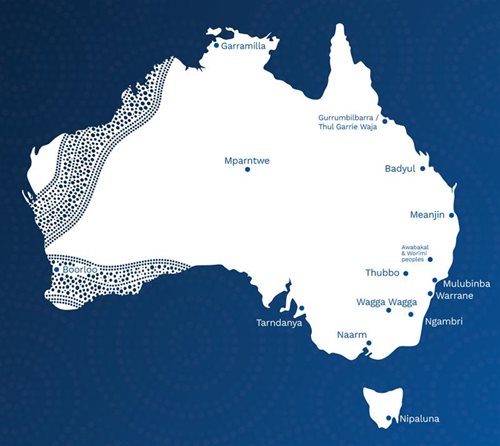
As we acknowledge NAIDOC week, we'd also love to highlight one of our indigenous staff members, Clinton Taylor who works as a sales and account coordinator at Pickles Mining Oil & Gas. Clinton belongs to the Iman (Yimen) people whose lands stretch through the Upper Dawson River region around Taroom, Wandoan and Miles of eastern Central Queensland.
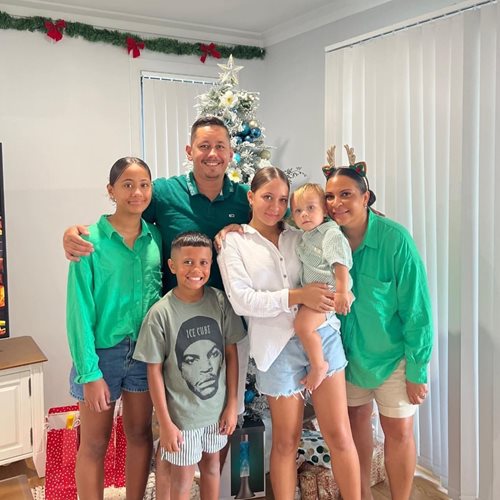
Pictured: Clinton Taylor, with wife Florence Taylor, oldest daughter Apanie (white shirt), youngest daughter Ahneece (green shirt), oldest son Cassius and baby boy Oaklan.
Why is NAIDOC week important to you?
Unity, reconciliation, and continuing cultural practices are why NAIDOC is essential to me and my family. It is not just a week of celebration for First Nations people but for all Australians. It's also a week for all Australians to reflect on the past, the good and the bad, but to come together, learn from it and move on stronger.
Any milestones for your people that you would like to share?
In 2015/2016, the Iman People successfully won the application for Native Title in their homelands.
The Iman People have native title rights and interests over a large area of land and waters in Central Queensland, spanning approximately 13,997 square kilometers. This area includes parts of Robinson Gorge, Expedition, and Isla Gorge National Parks, as well as the townships of Taroom and Wandoan. The native title recognition acknowledges the Iman People's traditional connection to and rights over this country.
The determination includes both exclusive and non-exclusive native title rights. Exclusive native title, held over approximately 475 hectares, allows the Iman People to possess, occupy, use, and enjoy the area to the exclusion of others. Non-exclusive native title, held over a larger area of approximately 498,329 hectares, allows the Iman People to exercise certain rights while sharing the land with others.
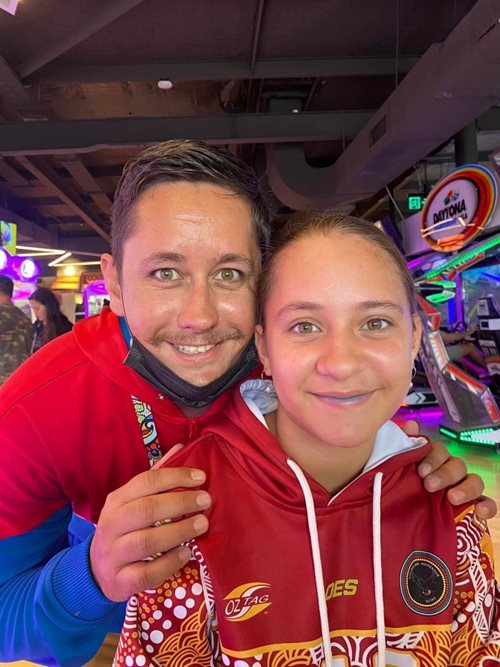
Pictured: Clinton and Apanie Taylor - Indigenous Allstars 2022, Townsville QLD.
Tell us more about the history of your ancestors:
Our people were mainly moved to a mission in Central Queensland called 'Woorabinda' where my grandmother was born and raised. Later, my grandmother met my grandfather; they moved to Rockhampton and raised a family of 13 children.
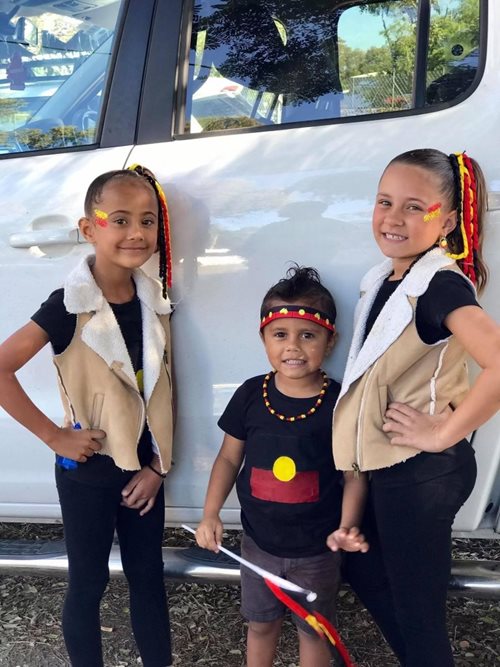
Pictured: Apanie, Ahneece and Cassius - NAIDOC 2018 Rockhampton
Are there any native foods you enjoy?
Kangaroo is good for spaghetti Bolognese as a substitute for beef mince. It's also much better for you from a health point of view.
Do you speak an Aboriginal language?
Unfortunately, our Native language was never recorded, and through the era of stolen generations and abolishment of cultural practices, our language was lost.
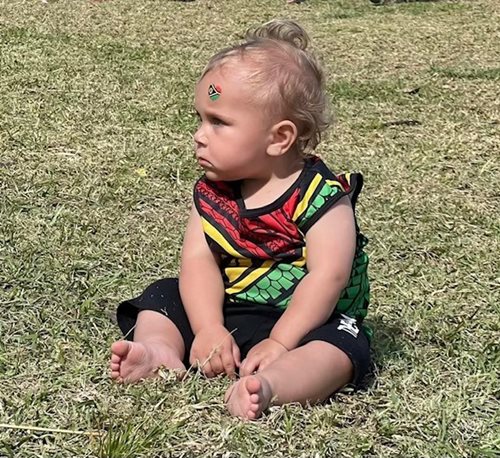
Pictured: Oaklan Taylor - Independence Day Vanuatu 2023
11 Jul